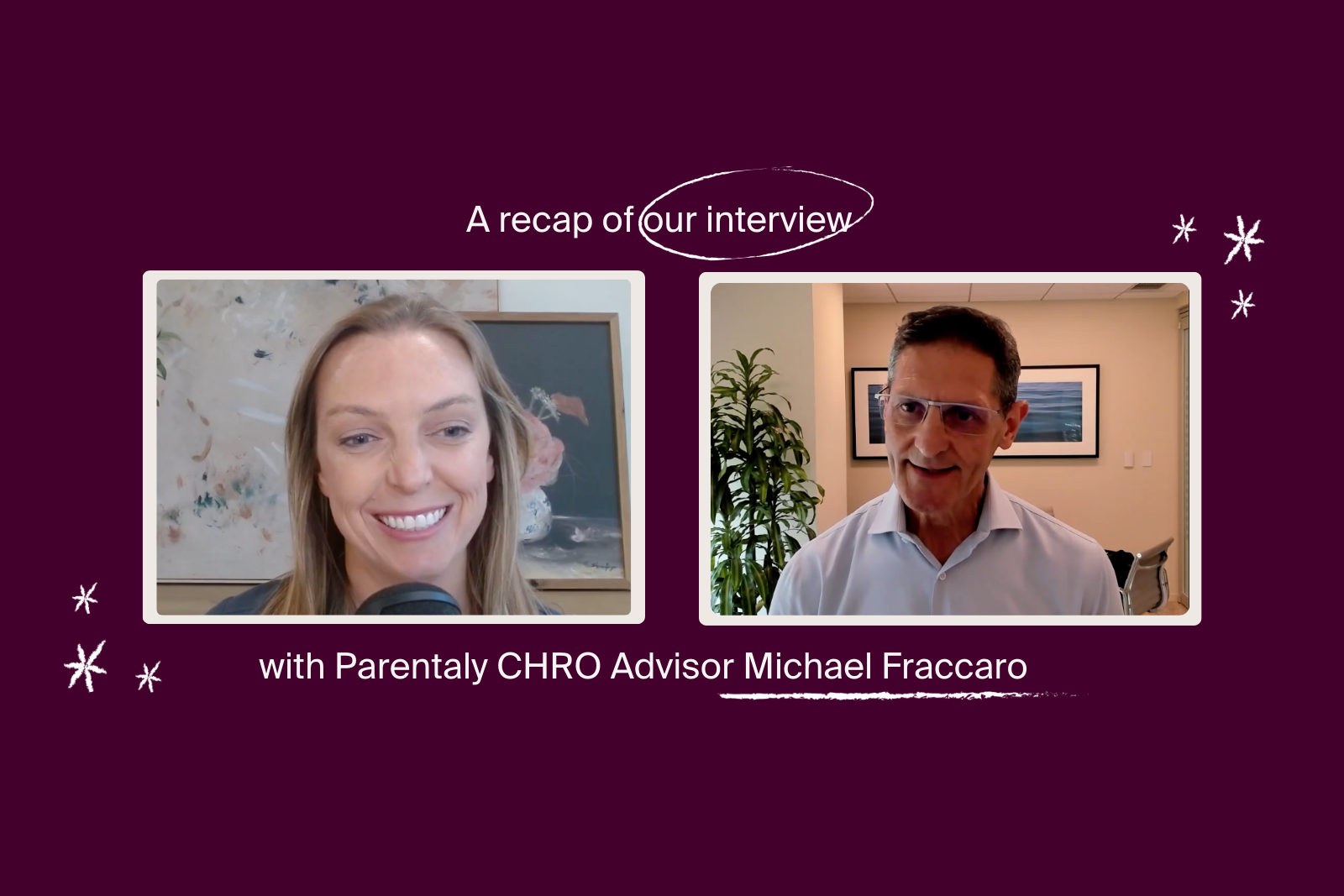As HR leaders continue to think about paid parental leave policies and overall programming to support working parents, these are the five key areas we suggest they focus on first:
1. Providing formal career support to protect the investment in paid parental leave
Offering paid parental leave is GREAT - but not many companies are thinking about the unintended negative consequences that come along with an extended leave.
As HR leaders roll out new policies or extended leave, they should think about what they can do to support both the individual going on leave to minimize career repercussions and the disruption caused to the team and business while they’re out.
This means looking into formal programming that focuses on pre-leave planning and re-onboarding success - whether through a program like ours or building it in-house - that ideally launches WITH the new policy.
2. Rolling back 12-month tenure requirements to ensure newer employees have access to paid leave
Many companies don’t think about the scenarios where 12-month tenure requirements will hurt talented employees or jobseekers: Expecting parents who are laid-off and seeking new employment is one example.
As HR leaders evaluate their policies, they should think about the “why” when it comes to tenure requirements. Most businesses include lengthy tenure requirements as a protection mechanism, but we think it does more harm than good. There are ways to protect the business while being fair (we shared a few options here).
We’re seeing tons of companies reduce these tenure requirements - many of which offer immediate eligibility and others with 6 months or less. See where you stack up against your competitors in our parental leave tenure database.
3. Requiring manager training to ensure a consistent experience for all employees going on leave
Managers play arguably the most important role in the parental leave experience, yet most are left on their own to figure out what exactly it is they need to do to help their direct reports through parental leave.
As HR leaders think about what formal career support they should provide for parental leave, they can’t forget about managers! There ARE right and wrong ways to manage through parental leave - and the way a manager shows up for an employee will make or break their experience.
Not sure where to start? Check out our manager checklist or this post answering questions asked about how to efficiently manage through parental leave. Or better yet.. reach out to get more info on our custom manager training workshops. 😉
4. Implementing return-to-work programs to create a more welcoming, smooth experience for returning new parent employees
It’s so common for a new parent employee to return from work and get thrown into execution mode the day they get back - but this is a HORRIBLE experience for the returning employee!
As HR leaders look to enhance their paid parental leave policies, they should think about an official ramp back program. Just like a new hire would never be expected to dive right in without onboarding, employees returning after leave will need time to learn the lay of the land.
These programs can include part-time work for full-time pay so they ease back into work as an added benefit - but at a minimum, the first month back should have an intentional re-onboarding plan to bring them up-to-speed faster.
5. Partnering with ERGs and parent groups to focus benefit enhancements on what employees actually want
Oftentimes companies want to do the right thing for employees, but don’t base decisions on what employees actually want.
As HR leaders evaluate new and existing benefits, they should look to employees to hear firsthand what they’re looking for - and partnering with an ERG or parent group is a great place to start.
We’ve piloted programs with ERG budgets and have even seen many ERG members participate in sales calls to help companies make decisions about implementing our product.
Heading 1
Heading 2
Heading 3
Heading 4
Heading 5
Heading 6
Lorem ipsum dolor sit amet, consectetur adipiscing elit, sed do eiusmod tempor incididunt ut labore et dolore magna aliqua. Ut enim ad minim veniam, quis nostrud exercitation ullamco laboris nisi ut aliquip ex ea commodo consequat. Duis aute irure dolor in reprehenderit in voluptate velit esse cillum dolore eu fugiat nulla pariatur.
Block quote
Ordered list
- Item 1
- Item 2
- Item 3
Unordered list
Text link
Bold text
Emphasis
Superscript
Subscript




























